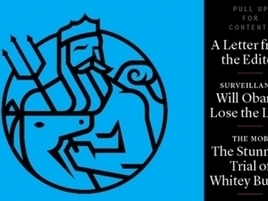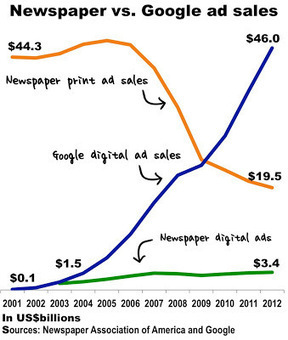Research and publish the best content.
Get Started for FREE
Sign up with Facebook Sign up with X
I don't have a Facebook or a X account
Already have an account: Login
 Your new post is loading... Your new post is loading...
 Your new post is loading... Your new post is loading...
|

jalp Internet Consulting Services's comment,
April 19, 2013 7:25 AM
Google transformed advs and made them accesible to SME's. So low budget marketing departments can act more easily, even if they run their campain through agances.

Guillaume Decugis's comment,
April 22, 2013 11:33 AM
@Jalp: good point and an essential reason that drove this change. Not just attention but lowering the barrier to entry. Thanks!

Kitty A. Smith's comment,
May 6, 2013 2:37 PM
People are always looking to place fault. Things change when something better comes along. Just because newspapers were first doesn't mean they are best. Tobacco knows time is limited, that would explain why they bought Kraft Foods!
|













Robin Good's commentary is far better than mine